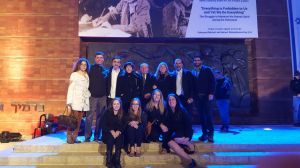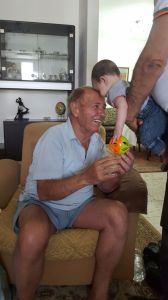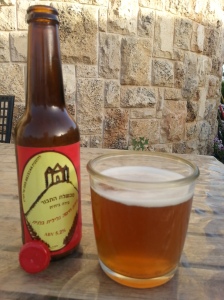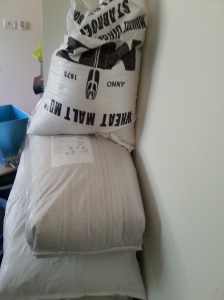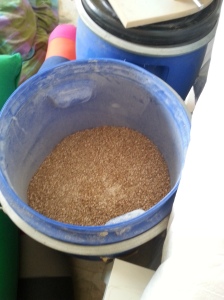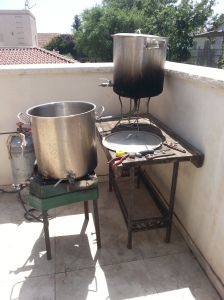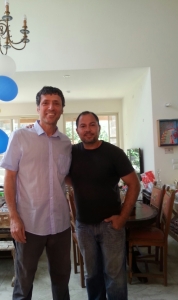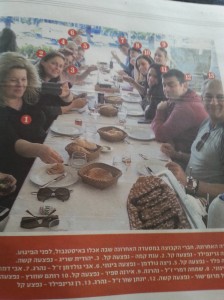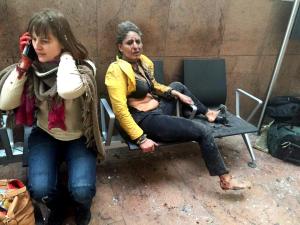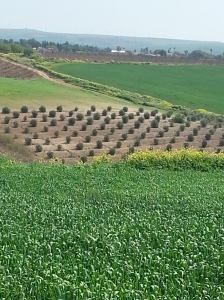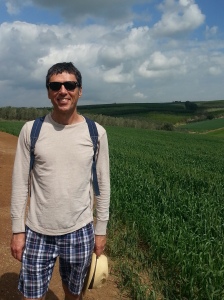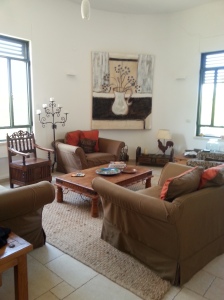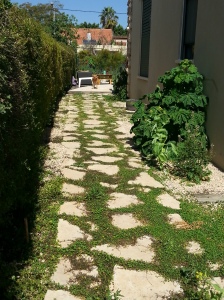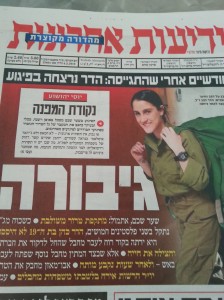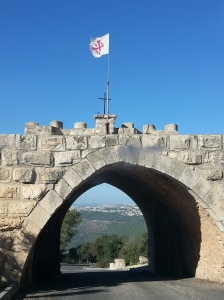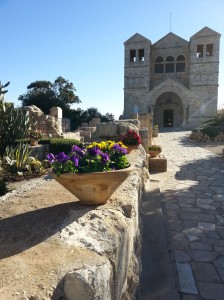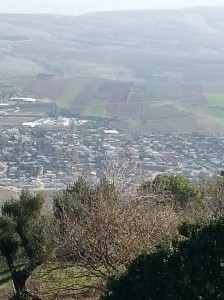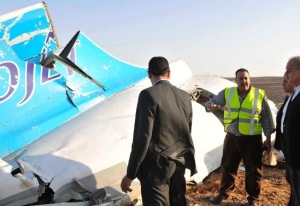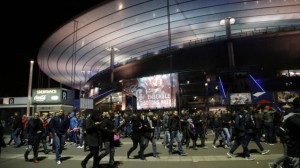My father, Joseph Labi, 88, always loved the sea. As a child in Benghazi, Libya, he frequented the seaport and watched boats sail in and out of the Italian, Fascist-controlled harbor.
Many years later, in Israel, I recall my father taking me to the sea in Bat-Yam, our hometown outside Tel-Aviv. We waded into the blue water until our toes could no longer touch the sand below. Then we floated and awaited for the waves to roll in from the deep. We body-surfed the waves, our arms swinging like windmills to catch the cresting wave, carried to shore, and back again, and back again.
It is fitting, then, that last week the Holocaust Memorial documentarian chose to film my father with the sea behind him as a backdrop. I look at my father and I can’t believe his age, nor mine — time did fly.
It was not until 1968, shortly after my Bar Mitzvah that I fully learned of my father’s horrific experience at the hands of the Nazis. I was in the Israeli-equivalent of the Boy Scouts and I was asked to volunteer my father to speak of his ordeal in front of the “troops.” It was a hot summer evening. My father, dressed fashionably as he always did, fanned his face with a folded handkerchief. I sat speechless long after he’d finished talking. The images didn’t add up. How was this stong, muscular, handsome man who stood before me was tortured to near nothingness by the Nazi machine?
Two years before, in 1966, and some twenty years after the end of WWII, my father, mother, sister and I visited a remote village in the Italian mountain range near Reggio Emilia. “This is where I spent my childhood as an orphan,” he said. Here in the village, Castelnovo Ne Monti, my father was interned by the Fascists and Nazis for two years. Walking with him then in the picturesque cobblestone streets shrouded by mountain mist, I couldn’t imagine what he’d endured as a 15 year-old boy before the Nazis put him on a train to Bergen-Belsen concentration camp in Germany.
That same night he and I sat at the Italian village outdoor cafe and watched on a grainy black-and-white TV the 1966 soccer World Cup final game between England and Germany. While the Italian crowd rooted for their Germans war-allies, my father and I jumped for joy when England won the game and took the cup. That night my father couldn’t be happier, a small revenge of sorts.
Years passed. He sometimes spoke of his experience at Bergen-Belsen, of his hunger, of his loneliness, of his humiliation, and his desire to live. After liberation by the Americans, alone, he wandered the bombed-out cities
of Europe, finally returning to his port city of Benghazi, and the sea. But it was no longer his home. Almost everyone he’d known had scattered. He made it to Egypt with a childhood buddy, and from there, dressed as a British Jewish Brigade soldier he was smuggled into British-controlled Palestine. For two years at a kibbutz he learned to tend to crops, milk the cows; learned to shoot a rifle, learned to read and write Hebrew before being drafted as a soldier in Israel’s War of Independence.
The rest is history. The number of Holocaust survivors is diminishing worldwide. Soon there will be no one left to give first-hand testimony. This week my father was honored as one of six survivors to light the torch at the Holocaust Memorial Services in Jerusalem. He met with Israel’s prime minister Benjamin Netanyahu, finally awarded a stage on which to tell his story. He owes thanks to his son-in-law Israel who’d campaigned for him for years, and to his grandson Daniel. My younger daughters, Maya and Romy, 17, honored their grandfather by heading an Israeli delegation to Bergen-Belsen. There they found his name recorded in the Nazi archives, including the date the train arrived at the camp.
My older daughters in America, Michelle and Vanessa, are proud of him, sharing his story with many of their friends of their generation.
The ceremony at Yad Va’Shem is over. The cameras stopped. The phone calls to my father from reporters and news crews stopped. But my father hasn’t. He will soon put on his soft walking shoes and head to the sea. There he will stand on the cliff and look into the water, watch the waves roll in. An old man and his sea.
Below there’s a link to my father’s video testimony.
http://www.yadvashem.org/yv/en/remembrance/2016/labi.asp
Maurice Labi is an Israeli-American who lived in Los Angeles for many years. In 2011 He returned to Northern Israel (Galilee) with his wife and twin teenage daughters. He is of two lands, of two cultures and he blogs about his experiences in Israel, particularly from Galilee where Jews and Arabs dwelled for centuries.
He has also written three novels: “Jupiter’s Stone,” “Into the Night,” and “American Moth” — available at Amazon.com
http://www.amazon.com/Maurice-Labi/e/B00A9H4XEI
or at BN.com






